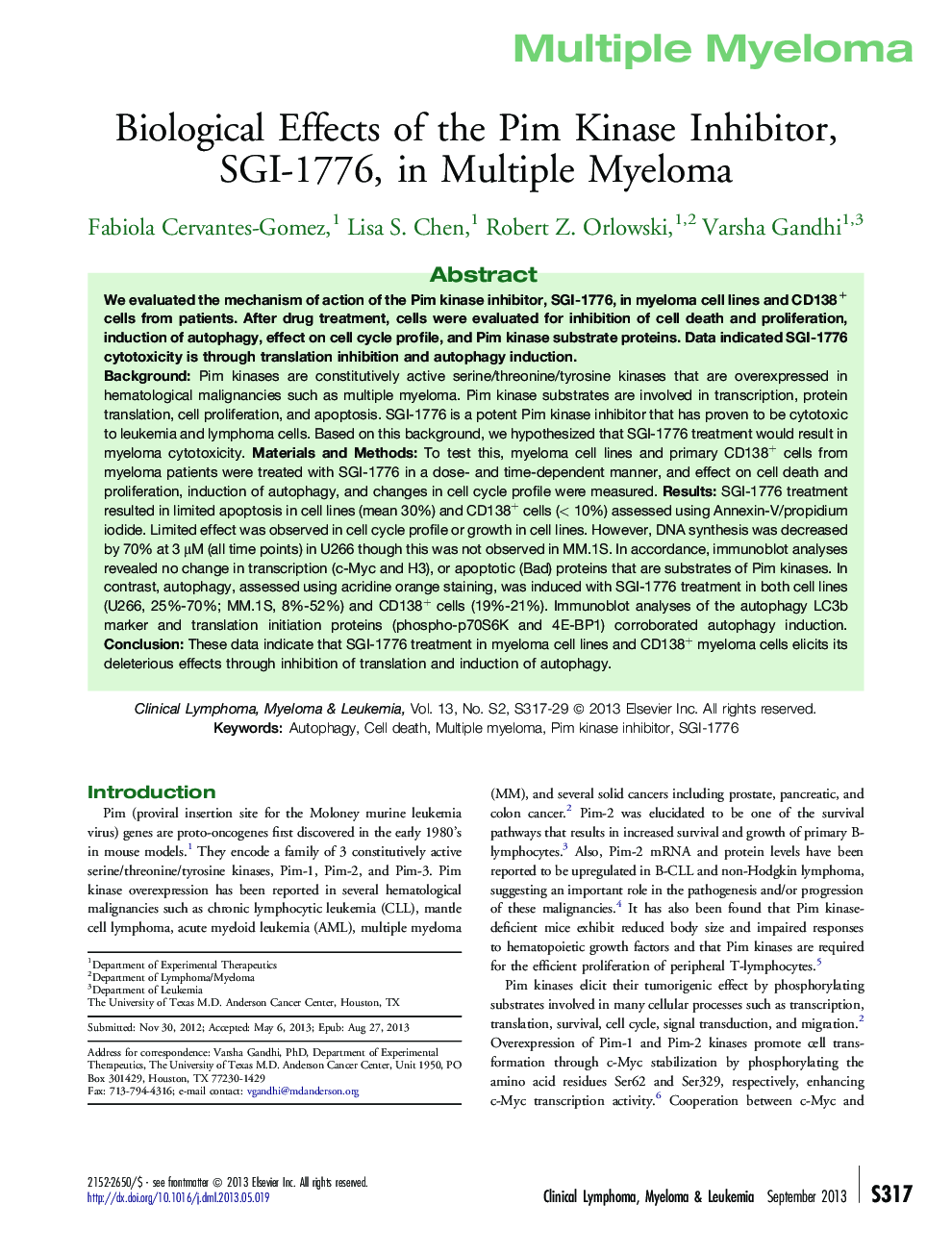| Article ID | Journal | Published Year | Pages | File Type |
|---|---|---|---|---|
| 2755035 | Clinical Lymphoma Myeloma and Leukemia | 2013 | 13 Pages |
BackgroundPim kinases are constitutively active serine/threonine/tyrosine kinases that are overexpressed in hematological malignancies such as multiple myeloma. Pim kinase substrates are involved in transcription, protein translation, cell proliferation, and apoptosis. SGI-1776 is a potent Pim kinase inhibitor that has proven to be cytotoxic to leukemia and lymphoma cells. Based on this background, we hypothesized that SGI-1776 treatment would result in myeloma cytotoxicity.Materials and MethodsTo test this, myeloma cell lines and primary CD138+ cells from myeloma patients were treated with SGI-1776 in a dose- and time-dependent manner, and effect on cell death and proliferation, induction of autophagy, and changes in cell cycle profile were measured.ResultsSGI-1776 treatment resulted in limited apoptosis in cell lines (mean 30%) and CD138+ cells (< 10%) assessed using Annexin-V/propidium iodide. Limited effect was observed in cell cycle profile or growth in cell lines. However, DNA synthesis was decreased by 70% at 3 μM (all time points) in U266 though this was not observed in MM.1S. In accordance, immunoblot analyses revealed no change in transcription (c-Myc and H3), or apoptotic (Bad) proteins that are substrates of Pim kinases. In contrast, autophagy, assessed using acridine orange staining, was induced with SGI-1776 treatment in both cell lines (U266, 25%-70%; MM.1S, 8%-52%) and CD138+ cells (19%-21%). Immunoblot analyses of the autophagy LC3b marker and translation initiation proteins (phospho-p70S6K and 4E-BP1) corroborated autophagy induction.ConclusionThese data indicate that SGI-1776 treatment in myeloma cell lines and CD138+ myeloma cells elicits its deleterious effects through inhibition of translation and induction of autophagy.
